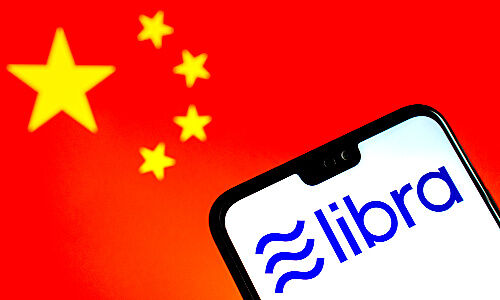The timing was spot on: in the weeks and months since the outbreak of the coronavirus, Libra has been working steadily on its project for a global currency. This was no accident and it makes sense for a number of reasons.
When Mark Zuckerberg presented his project of a global stablecoin a year ago, he may not have expected the barrage of criticism that he would receive for his latest brainchild. The biggest headache for sure was the opposition voiced by central banks and regulators – because without their consent, there is no way that a new cryptocurrency such as Libra could take off.
The Swiss, handed a key role in the process due to the domicile of the Libra Association in Geneva, soon ascertained that the project in the form it was presented in would stand no chance of being waved through.
Ueli Maurer Says No
And, even worse: the mighty U.S. Federal Reserve Bank stated that a global currency had the potential to influence the monetary policy of the central bank. The chances of governments giving the Libra plan a chance were tending to zero.
Soon enough, the project's early sponsors dropped out. PayPal and credit card firms disappeared from Libra's list of partners and at the end of December, Swiss President Ueli Maurer made it plain: «Switzerland cannot grant Libra a permit in its current form.»
You would have been wrong to believe that Zuckerberg would now simply down his tools and drop the idea altogether. Half a year later, the world is not the same anymore and the Libra Association has made excellent use of the time.
Sweeping Success for Online Shopping
It is worth considering the conditions conducive to the launch a new, private global currency. Of course, Facebook helps with a enormous potential user community – the social network has a quarter of the world's population signed up.
But to win over this diverse group of clients for something totally new, your product has to be state-of-the-art. Only if the token can bring you a clear advantage will it reach the necessary traction. Boundless and cheap cross-border payments would appear to be a great idea for the average Facebook user. Because, and that's the third aspect, customers must have taken to online shopping.
The Payment-App in the Corner Shop
The coronavirus has been the catalyst for online shopping. Even people, who for reasons of background, habit or their traditional surroundings have been used to do their shopping in normal stores have been forced to get used to online shopping for many goods.
And, arguably more importantly still, even the small corner stores started refusing cash and opted for card payments. Cash is on the retreat as a means of payment.
Libra Appoints Topshot as CEO
While the conditions were laid for the broad acceptance of a digital global currency, the Facebook team tweaked its project. First, the association in April made a new filing with an adjusted version of the token, which as such is better suited to get an approval from the Swiss regulator. Next came a new wallet for the coin called Novi. And, last but not least, Zuckerberg in early May hired a topshot as the first CEO of the project.
Stuart Levey joined from HSBC, whose chief legal officer he was. Appointing a currency expert from a global bank, who had spent many years in Washington is highly symbolic: Silicon Valley showed the banking industry where the best talent in future will go. Levey has excellent ties to governments and regulators which may help getting a license for Libra.
Part of a Global Contest for Power
What's left as a major issue is the opposition from central bankers. There's much at stake for all. If a global parallel currency were to push traditional currencies to the fringes, central banks may lose their transmission tool. And that's how Libra would upset the powers of the state.
Cryptocurrencies may yet become embroiled in the global power struggle. In China, two tech giants have established their systems – Tencent and Alibaba. The latter has been as astute in exploiting the opportunities presented by the lockdown as Libra and became a serious lender to businesses.
These firms have huge influence thanks to their reach and know how to use it. This won't please the U.S. and Libra might eventually profit from an anti-Chinese sentiment.
But to do so, the Libra promoters first have to convince monetary authorities of their project's worth. Central bankers tend not to be pushed into hasty experiments. It wouldn't come as much of a surprise if remained true to their reputation.



































